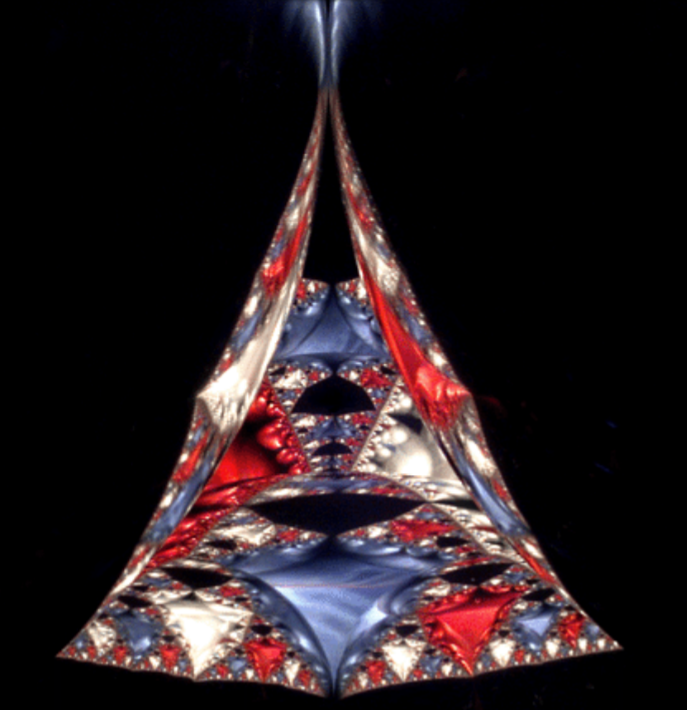If we have a Markov coding or another symbolic description of a dynamical system it is usually easy to prove that the system is chaotic (in the sense of of Li-York, Devaney, positive entropy of what ever). My impression is that most (interesting) dynamical systems coming of natural science are in fact chaotic. But this is rigourously proved only for a few systems. What is the reason for this? Is it difficult to find a symbolic coding for systems coming from natural science or are we (as mathematicians) not so much interested in these systems?
-
3$\begingroup$ Proving that a mathematical model is (or isn't) chaotic is not quite the same thing as proving that Nature is (or isn't) chaotic. $\endgroup$– Gerry MyersonCommented May 8, 2013 at 6:09
-
1$\begingroup$ The proofs of chaotic behaviour tend to rely on hyperbolic behaviour (or at least non-uniformly hyperbolic behaviour). Proving that this holds in many real systems (or even in lots of toy models) is extremely hard / apparently beyond the reach of current technology. $\endgroup$– Anthony QuasCommented May 8, 2013 at 8:26
-
1$\begingroup$ Dear Gerry, of course You are right. Please apologize the provoking title. $\endgroup$– Jörg NeunhäusererCommented May 8, 2013 at 16:30
-
$\begingroup$ Dear Anthony, i understand what You mean. But sometimes I wonder if it is necessary to use the machinery of (non-uniform) hyperbolic dynamics to prove that a systems is chaotic. If you directly construct an appropriate dynamical partition, you may prove that a system is chaotic without showing hyperbolicity (or?). In fact beside toy models I do not know a strategy to find such a partition, but may be there is a (black magic) way. $\endgroup$– Jörg NeunhäusererCommented May 8, 2013 at 16:42
-
$\begingroup$ Incidentally, is it true that a system is uniformly hyperbolic if and only if it has a finite Markov partition? $\endgroup$– John BCommented Dec 22, 2015 at 22:41
3 Answers
Even rather simple isolated natural phenomenon are complex. In the sense that although they can in principle be written in mathematical terms, we don't have the time and energy to do it. The question becomes therefore: can we prove chaos when we don't know the exact model ?
Both mathematicians and physicists work about this question. Physicist identify so-called universal models, like KdV equation, KPP, harmonic oscillator, etc ..., with the idea that they are the principal part of more complex models ; in mathematical terms, they are normal forms. Mathematicians, in particular dynamicists, prove that some trajectories are structurally stable, under an initial pertubation and a slight change of the dynamical system.
There is some hope that, for some not-too-complex natural systems, we could prove that, even if we don't know the exact model, it is close enough to a simple system (say Lorenz system), so that it inherits the chaotic behaviour of the latter. This is not very far from Feigenbaum's approach to establish the universality of the constant that bears his name.
Most rigorous studies of "natural" systems, whether chaotic or not, are in the context of small perturbations of simple systems. Going beyond that usually requires the help of numerics, and a full "proof" would require rigorous error estimates. This tends to be extremely tedious, raising the question whether it is worth doing (who would read the paper?). Proofs of chaos by perturbation approaches do exist, e.g. Melnikov's method, Silnikov's method.
-
$\begingroup$ I agree with you on the whole. In quartz block example it's interesting that the starting model is integrable (quite rare) and that a small perturbation dramatically shifts the level spacing distribution and makes things ergodic. In the WADA case, I don't see any small perturbation. It's just 4 spherical mirrors stacked cannonball fashion. $\endgroup$– JohnSCommented Apr 24, 2018 at 22:48
There are a number of real systems that have been extensively studied in the lab that show either classical/ray chaos and quantum/wave chaos. Typically the measurement involves analyzing the higher order modes or eigenfunctions of the system (in the quantum/wave case).
These examples include the studies of Wada boundaries in ray scattering in a system of 4 reflecting balls (by James Yorke's group--made the cover of Nature, below), the measurement of scars in the bunimovich stadium for high mode number, the level spacings in superconducting microwave resonators and, perhaps the most impressive, in the level spacing of a quartz resonator. Mark Oxborrow and his group were able to show the switchover from Poisson to Wigner statistics in a quartz resonator where they started with an integrable geometry and made small perturbations (shaving on a tiny bit of one corner). In their more recent work they were able to correctly identify something like 100k modes for their calculation.[2] To see this many modes AND correctly identify them is a real tour de force. It requires extremely high Q resonators and an accurate way to model them. They also measured parametric correlations predicted by random matrix theory.
Here is a photograph (not simulation) of the Wada basins in the 4 ball scattering problem (from: https://www.nature.com/articles/20573).
[2]: Measurement of parametric correlations in spectra of resonating quartz blocks P Bertelsen, C Ellegaard, T Guhr, M Oxborrow… - Physical Review Letters, 1999
-
$\begingroup$ This doesn't seem to address the question which is asking specifically about rigorous results. $\endgroup$– j.c.Commented Apr 24, 2018 at 22:16
-
$\begingroup$ Honestly, I'm not sure what rigorous means in the context of a physical system, which almost by definition, is not exactly encoded in the model. E.g., how high in frequency do you have to go to show that the asymptotic distribution of nodal domains in Bunimovich is uniform. What are the uncertainties in your imperfectly made stadium? And whether uniformity is a statistical issue. I'd really like to hear your opinion on this. I'm a physicist not a mathematician. Nothin in the real world comes without uncertainties. Except death and that other thing. cheers. $\endgroup$– JohnSCommented Apr 24, 2018 at 22:42

